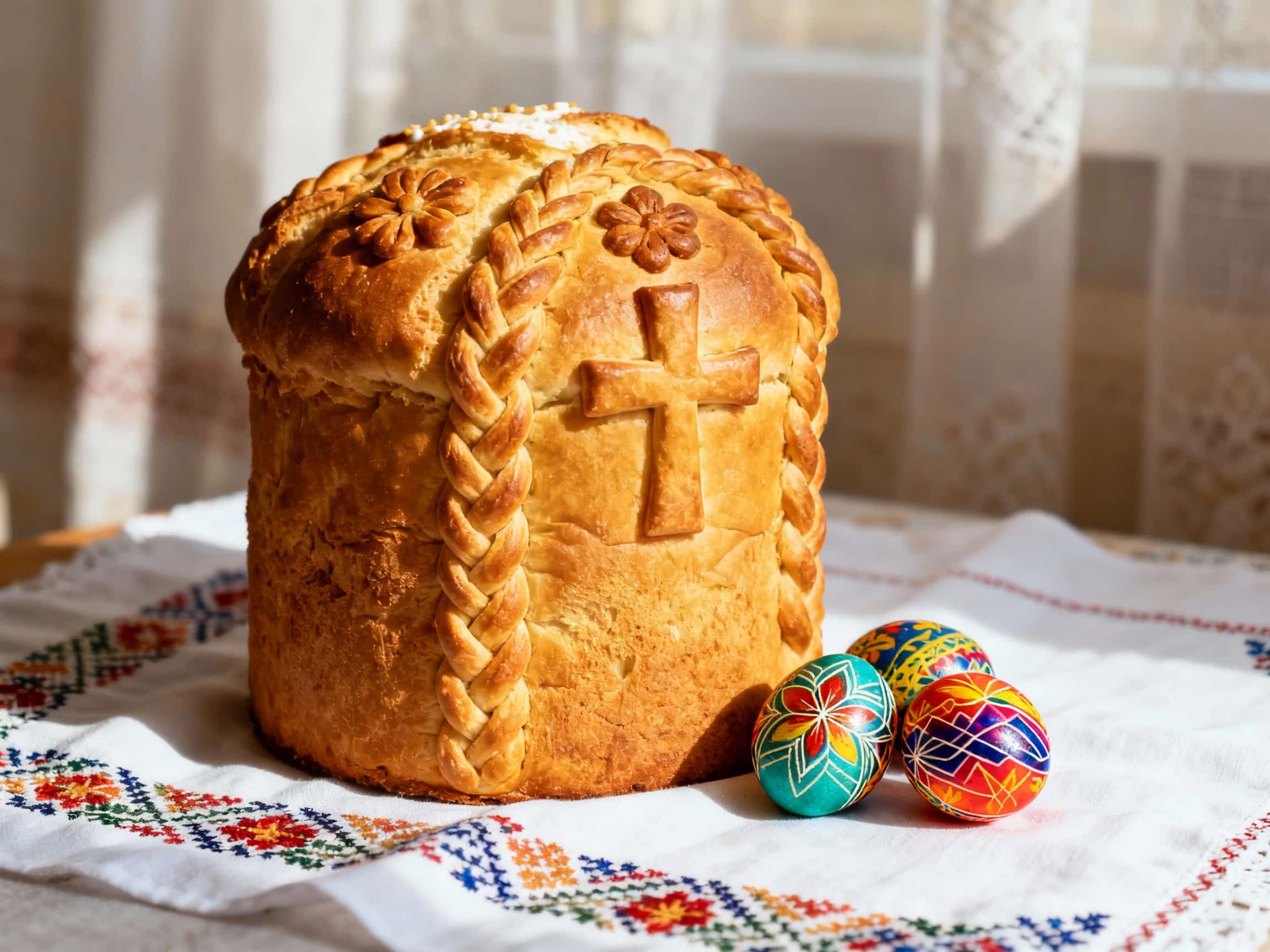
Paska
Паска
- Country
- Ukraine
- Region
- Not specified
- Recipes
- 0 Recipes
Origins & Characteristics of Paska
Paska, the traditional Ukrainian Easter bread, is far more than just a baked good; it is a profound symbol of resurrection, new life, and the spiritual joy of Easter. Its name, 'Paska,' is derived from 'Pascha,' the Slavic word for Easter. This rich, sweet bread has ancient roots, with its origins intertwined with pre-Christian customs and later Christian traditions across Eastern Europe. The tall, cylindrical shape, often adorned with intricate dough braids, crosses, and floral motifs, symbolizes Christ's tomb and resurrection. The making of Paska is a deeply ritualistic and communal event in Ukrainian culture, often beginning on Holy Thursday or Good Friday. Families would gather, using their finest ingredients – flour, eggs, butter, sugar – to bake this sacred bread. Historically, Paska was baked in traditional ovens, often large enough to accommodate several loaves. The process itself is considered a form of prayer and reflection, with women often baking in silence or with prayers, ensuring good fortune and a blessed year. On Easter Sunday, Paska, along with other blessed foods like pysanky (decorated eggs), cheese, and meats, is taken to church for blessing by a priest. This blessing is central to its spiritual significance. Each element of the bread, from the golden crust representing divine light to the rich, tender crumb symbolizing abundance, carries layers of meaning. While recipes vary, Paska is typically a sweet, brioche-like bread, sometimes flavored with citrus zest, vanilla, or raisins. Notable personalities, such as Ukrainian religious figures and folklorists, have emphasized its enduring place in Ukrainian identity. Even amongst the Ukrainian diaspora, Paska remains a vital link to their heritage, fostering a sense of community and continuity across continents. It is the centerpiece of the Easter basket, sharing prominence with other symbolic dishes, and its consumption marks the joyous end of Lent.
History of Paska
Early Slavic cultures incorporate rich breads into spring rituals and celebrations, pre-dating Christian Paska.
Christianity is adopted in Kyivan Rus', and older bread traditions merge with Christian Easter symbolism for Paska.
Paska's elaborate decorating techniques, including intricate dough work, become more common.
Ukrainian President Volodymyr Zelenskyy shares a photo of his Paska on Easter, highlighting its national importance.
Classic Paska recipes and variations
0 recipes foundWe'll add related recipes for this dish soon.